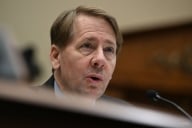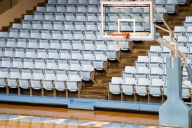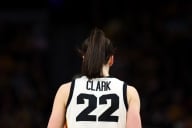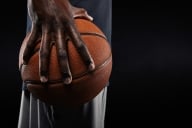You have /5 articles left.
Sign up for a free account or log in.
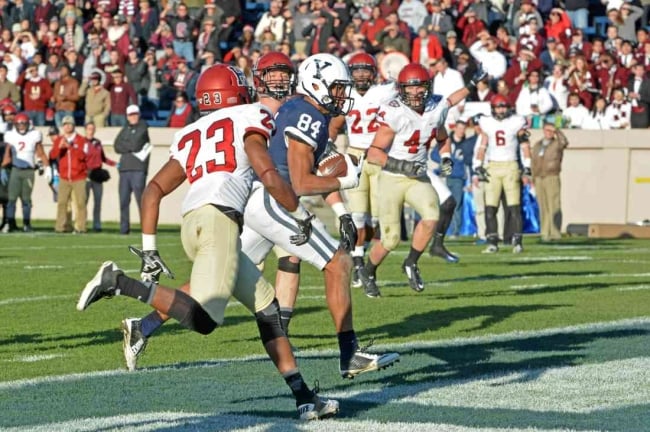
The Harvard University and Yale University football teams compete.
Michael Marsland, Yale University
The Ivy League, whose member universities are among the most visible but whose sports programs fill a unique role in college athletics, will postpone all fall sports until 2021 in light of the coronavirus pandemic.
The league was the first Division I athletic conference to call off the 2020 football season, while others, prodded by alumni, state politicians and even President Trump, continue to push forward for a September start.
An official announcement from the league, whose members include Brown, Columbia, Cornell, Harvard, Princeton and Yale Universities, Dartmouth College, and the University of Pennsylvania, was published Wednesday evening. The league's release said that "it will not be possible" for Ivy League teams to compete before the fall semester is over, due to the institutions' campuswide reopening strategies that include travel restrictions and social distancing requirements.
Practices and training could still take place, if they follow individual institutions' requirements and government regulations, the release said. The league itself will also issue guidelines for such activities to resume in a "phased approach." Decisions about winter and spring athletics, including the possibility that fall sports could be played in the spring, "will be determined at a later date," the release said. In a joint statement, the Ivy League Council of Presidents said the decision is "extremely difficult" but it is based on health and safety considerations.
"With the information available to us today regarding the continued spread of the virus, we simply do not believe we can create and maintain an environment for intercollegiate athletic competition that meets our requirements for safety and acceptable levels of risk, consistent with the policies that each of our schools is adopting as part of its reopening plans this fall," the joint statement said.
The league was the first to call off its conference basketball tournaments and cancel the remainder of the spring athletics season on March 11, as COVID-19 infections in the United States increased and students were told to go home or not return to campuses after spring break. Universities with the most visible basketball programs, other intercollegiate conferences, then the National Collegiate Athletic Association followed the league’s lead in close succession, halting competition for all winter and spring athletes.
Chris Marsicano, co-principal investigator for Davidson College’s College Crisis Initiative, believes the cancellation or postponement of fall sports will follow a similar pattern, but perhaps over a longer period of time. The initiative, led by Marsicano, a visiting educational studies professor, analyzes institutions’ responses to the pandemic.
The Ivy League’s decision Wednesday sends a message to the rest of higher education that “it’s OK to pump the brakes on fall athletics until we have a handle on health and safety” of athletes and athletics staff members, Marsicano said. It will give college administrators outside the league a point of reference as they potentially have to break the news of a canceled football season to donors, he said.
The number of Division I football programs with COVID-19 outbreaks after players returned to campus for preseason training is evidence that “health and safety” is not yet under control and a signal to college leaders that it’s too early to start sports back up, he said.
“Large athletics programs like [University of] Texas and Kansas State [University], with huge football teams swimming in money, haven’t been able to find ways to keep their athletes safe or prevent them from contracting COVID-19,” Marsicano said. “This is in a setting with no lack of financial means to make sure students stay safe, and they are still struggling to keep athletes healthy.”
Robin Harris, executive director of the Ivy League, said Wednesday’s decision was based entirely on the reopening plans presented by institutions within the league, including some that only bring parts of the undergraduate student body back to campuses in the fall. “Taken as a whole, those policies made it impossible to have athletics competition during the fall semester,” Harris said.
“We focused on the Ivy League and what was right for the Ivy League,” she said. “These decisions really were about the health and safety of the student body, and consistency with campus policies.”
Harris said the current state of intercollegiate athletics nationwide -- COVID-19 outbreaks impacting multiple sports programs and serious budget shortfalls -- did not factor into the Ivy League’s decision-making. The virus is “certainly” continuing to spread, but it will be up to the individual Ivy League campuses to determine how “modified” practices will be structured, she said.
Marsicano said the decision by leaders of Ivy League universities have influence over other college leaders' plans for fall athletics. As sector-leading institutions, the league is being a “good institutional citizen” and acting to “protect” the higher education sector from further damage by postponing the fall season, he said.
Jennifer Heppel, commissioner of the Patriot League, another Division I conference with athletes who are high-achieving in academics, said that for the time being, the league’s member institutions are sticking to their current plan of pushing back the start of fall competition and welcoming athletes back to campuses at the same time as all other students in September. Heppel said it would have been a “contradiction” for the Ivy League to hold athletic competition, because the Ivies’ reopening plans only allow for some students to return to campus. College leaders in the Patriot League are preparing to fully reopen, she said.
But Heppel said she expects the league’s plan is subject to change until September, and noted the Ivy League’s influence.
“In higher education, I look to the Ivy League for leadership,” Heppel said. “That’s not for athletics, that’s for higher education.”
Out of fairness to the athletes who are determining their travel back to campus and commitments in the fall, Heppel said she anticipates more colleges will announce their athletics plans by the end of July.
Welch Suggs, associate director of the Grady Sports Media Initiative at the University of Georgia, said it’s hard to predict what will happen with the virus and where higher education as a whole will stand in August or September. But the decision from the Ivy League is not premature, given that it is based on what the fall semester will look like for all students at its institutions, Suggs said. Any plan for the return of athletics that differs from the average student experience could cross too far into treating athletes as employees of colleges, he said.
“That’s a tactical notion to preserve the model of college sports that we have,” Suggs said.
M. Dianne Murphy, vice president of the PICTOR Group, an intercollegiate athletics consulting firm, who served as athletic director at Columbia for 14 years until 2016, said the Ivy League approaches athletics decisions differently than other conferences, considering “how athletics fits into the wider university community.” The league prioritizes the well-being of athletes, and their academic study, above all else, she said.
“It goes back to the core values of the league,” Murphy said of the Ivy League’s decision making. “It really goes back to the athletics programs being part of the fabric of the universities. It goes back to the core principles of academics first and then of course balancing high, rigorous academics at highly competitive institutions with Division I athletics.”
The Ivy League is distinct among other conferences, which puts into question how likely other athletics leaders are to replicate its decision. Unlike institutions in other Division I conferences, the Ivy League does not award athletic scholarships. The league offers 35 varsity sports, more than most other Division I conferences. The Southeastern Conference, or SEC, offers 21 sports, and the Big 12 offers 23, according to the conferences’ websites.
Murphy noted that the league’s first conference basketball tournament for both men and women was not introduced until 2017 because Ivy League leaders thought such postseason competition demanded too much of athletes after a long regular season. The Ivy League was also a leader in attempting to reduce concussions among football players and decreased the number of full-contact practices for Ivy League teams from the NCAA standard in 2011.
John Thelin, a University of Kentucky research professor who focuses on the history of higher education and public policy, wrote in an email that Ivy League institutions have above-average participation in varsity athletics among undergraduate students compared to other Division I institutions. That considered, Harvard’s plan to return only 40 percent of undergraduates to campus in the fall significantly “reduces the pool of students who would be available to play varsity sports” at the college, Thelin said.
Marsicano said another significant difference between Ivy League institutions and their non-Ivy peers, especially those in the Football Bowl Subdivision level, the top division for college football, which the Ivy League is not a part of, is the anticipated financial losses from a shortened or canceled football season. The damage will be not nearly as acute at institutions such as Harvard and Yale, where athletics is not a major driver of enrollment or revenue as it is at other institutions, Marsicano said.
High-achieving students will continue to clamor to get into the Ivy League institutions, “no matter if they’re on the squash team,” he said. But institutions and conferences in Division II and III and even others in the Division I Football Championship Subdivision, in which the Ivy League universities compete, need athletes to return to their campuses in order to collect tuition and room and board revenue and keep their doors open, Marsicano said. Thelin said FBS institutions have to worry about forfeiting ticket sales, broadcast and advertising revenue should they change the structure of the fall football season.
"I don’t think the Ivy League and its members face the revenue-generating pressures of the FBS and power conferences," he wrote. "And, whether the Ivy League or the Big Ten or the SEC or the ACC or Pac-12, all those magnificent sports facilities are going to be requiring payments and maintenance whether or not there is varsity play and games."
Greg Sankey, commissioner of the SEC, said in a written statement on Wednesday that the conference's member institutions will “continue to effectively manage the health and safety of our student-athletes” as they prepare for their 2020 fall athletics season. Louisiana State University, the most recent college football national champion, competes in the SEC.
“We said from the onset of this pandemic that circumstances around the virus would guide our decision-making, and it is clear recent developments related to COVID-19 have not been trending in the right direction,” Sankey said. “There are important decisions to be made in the coming weeks and by late July there should be more clarity about the fall season.”
During a White House event where Trump leaned on college leaders to reopen, he asked Finis E. St. John IV, the University of Alabama System’s chancellor, whether the top-ranked Crimson Tide football team, an SEC member, would be playing this year. St. John responded by assuring the president that the Tuscaloosa university is “planning to play the season.”
“Understand that that creates great difficulties and complexities,” St. John said. “It’s important to a lot of people, but we’ll do our best on that one, too.”
One Division III conference, the Centennial Conference, did announce on July 7 it would suspend fall athletics competition for its 11 member institutions, which include a range of private colleges throughout Maryland and Pennsylvania. The decision was made “given health and other related concerns” and conference leaders will consider moving some fall sports competition, explicitly football, to the spring, a release from the conference said.
Northwestern University and the University of Wisconsin at Madison also on Wednesday postponed a football game scheduled to be played Nov. 7 at Wrigley Field, where the Chicago Cubs play Major League Baseball, a release from Northwestern Athletics said. Athletic department officials and the Cubs came to the decision “in consideration of the myriad challenges presented by the coronavirus pandemic,” the release said. The game was not canceled outright; the Wildcats' 2020 football schedule now shows that it is set to be played at Ryan Field in Evanston, Ill., Northwestern's home stadium. The team is scheduled to start the fall season on Sept. 5 with a game against Michigan State University.
Murphy, of the PICTOR Group, said she is concerned that if conferences and colleges push forward with fall sports and aren’t careful to protect the health of athletes, fans of intercollegiate athletics could be “sitting around this time next year and we don’t have college sports.”
“We have to be very careful here and very respectful,” she said. “We may not be having athletics, college athletics, if we’re not careful and we don’t manage this right. No one wants to see this.”
Heppel said the outbreaks among athletes that have already returned to campus for training shows the challenge ahead for college leaders as they attempt to reopen all of campus, let alone hold sports games. The outbreaks are occurring long before competition is set to begin, she said.
“This is just students moving back to campuses and engaging in activities,” Heppel said. “There’s been no competition here. There really hasn’t even been real practice. It’s the return of students to college communities. It’s not going well, is it?”

